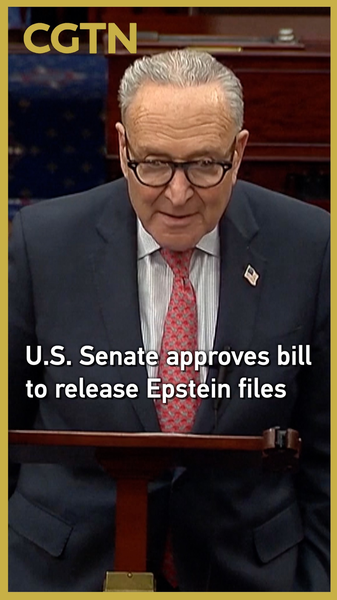On November 18, the U.S. Senate gave unanimous consent to the House-approved Epstein Files Transparency Act, a measure that would require the Department of Justice (DOJ) to release a trove of files related to late financier Jeffrey Epstein.
The move by the upper chamber came just hours after the House of Representatives voted 427 to 1 in favor of the measure, signaling near-total bipartisan backing. If signed into law by President Donald Trump, the act will mandate the DOJ to publish all unclassified records, documents, communications and investigative materials tied to Epsteins case.
During floor debates, Senate Democratic leader Chuck Schumer underscored the urgency. "My unanimous consent request guarantees that the Senate will immediately pass the Epstein Files Transparency Act without any further action," Schumer said. "As soon as it comes over from the House, we will pass the House’s bill without changes, without delay."
The legislation includes carve-outs to protect victim privacy and safeguard information that could compromise active investigations. DOJ may withhold personally identifiable details and sensitive law-enforcement materials.
For young global citizens and advocates of open government, the act represents a milestone in transparency and accountability. Data from Freedom of Information Act requests show public interest in Epstein-related documents spiked by 350% after major revelations in 2019. Entrepreneurs and changemakers see the broader implications: improved access to government records could empower informed civic engagement worldwide.
As of today, November 19, the ball is in the White House. President Trump’s signature will turn the bill into law, setting a new standard for how federal agencies handle high-profile case files. The global community is watching to see if the U.S. sets a precedent for transparency in sensitive investigations.
Reference(s):
cgtn.com



